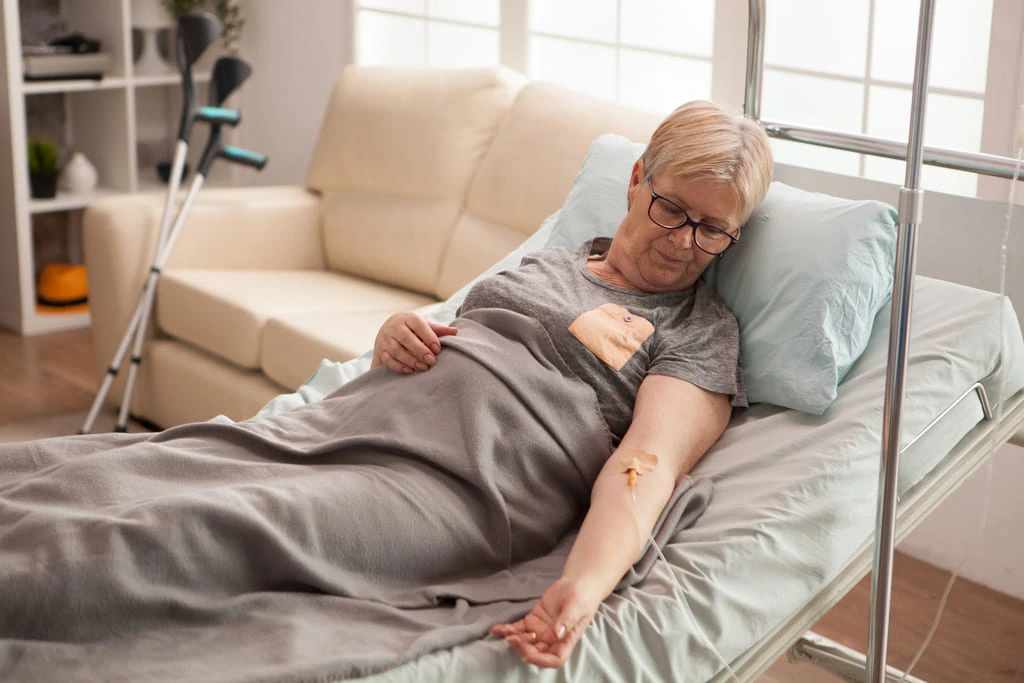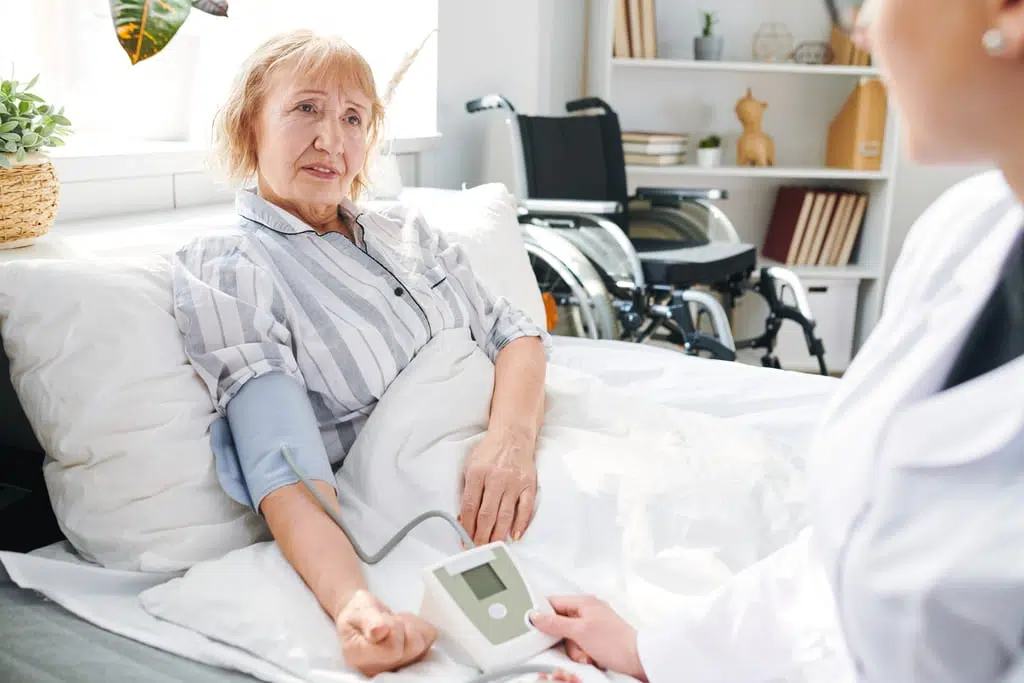The Post Surgery Recovery Process
Post-surgery care at home is crucial in ensuring you’ll be provided with everything you need to recover smoothly after surgery. The length of the healing process depends on the type of surgical procedure and the individual’s overall health. In any case, it’s better to prepare for the pending procedure and the recovery afterwards.
Once the surgery has been completed, you will be brought to the recovery room. In some situations, the individual may be transferred to the intensive care unit for intensive monitoring for the first couple of hours or days. The clinical and nursing team will closely monitor you until you recover completely from anaesthesia. While a hospital stay, the team of clinicians and nurses will constantly check the following:
- Your vital signs, such as blood pressure, heart rate, breathing
- Look after any signs of possible complications
- Check the person's body temperature
- Administer pain medication
- Monitor the level of consciousness
- Take care of drains, tubes or lines
- Monitor the intravenous infusions
- Take care of the body positioning
In addition, the clinicians will also provide advice and exercises to speed up the recovery process. After being discharged from the hospital, you will need post-surgery care at your home.
Recovering at Home

Coming home after surgery can be a challenging emotional and physical journey. There are a number of factors that affect the speed and paceline of your recovery process, including the type of surgery, general health, and care at home.
However, there is no place like home, and many patients feel most comfortable and safe in their familiar surroundings. After surgery, the first and most important thing to do is to cooperate regularly with your doctor and follow the medical team’s instructions. Don’t hesitate to consult your doctor immediately for any concerns regarding your wound care or your emotional or physical state.
Now, let’s explore the 8 tips that can help you heal faster after surgery.
Tips to Speed up After Surgery Recovery at Home
Although you’ll probably need additional support, usually through a family member or a healthcare provider, here are basic rules you can follow to speed up after surgery recovery at home.
Follow Doctor's Orders
Any surgical intervention, from minor to major, completes the discharge process with instructions related to recovery. These instructions are issued by the surgical team and usually include the following information:
- Wound care
- Advice to prevent infection
- Recommended activity
- Nutrition advice
- Patient's comfort
- Recommended physical therapy
- Advice on physical and emotional welfare
Discharge instructions also provide information about when to call your doctor and the warning signs of a medical emergency.
Make Your Home Safe
If possible, it is recommended that you prepare a safe and practical environment before going to the hospital. One helpful tip is to ensure that the recovery room is located near a bathroom and without stairs. It is also important to have easy access to light in case of waking up in the middle of the night. Additionally, removing any obstacles that may impact movement around the house is crucial.
Observe Any Incisions and Wounds
Right after the surgery, you will need to monitor your incision and follow the healing process. Proper wound care is essential in the recovery process. It’s recommended that you check your incision several times a day to make sure the stitches and staples remain intact. Also, you should follow the surgeon’s instructions about cleaning the wound as prescribed. Some people tend to over-clean the wound or use too many antiseptic products, which may have a negative effect on the incision. Therefore, the safest way to treat your wound is to keep close to your physician’s advice.
Reduce Risks of Infections
You can reduce the risk of infections by regularly washing your hands and using sanitisers before touching the wound or incision. A surgical site infection might occur in rare cases, but this typically appears within 30 days of the intervention. Your surgeon will give you a list of recommendations for keeping your wound safe and preventing infections.
Maintain a Healthy Diet
Eating healthy food rich in fibre, proteins, and other nutrients that can speed up the healing process is crucial for your recovery. Regular meals and optimal hydration can do wonders for your body. You can consult your GP about the type of food you should consume to speed up the healing process. In some cases, consulting a nutritionist may be the best option.
Hydrate
Just like food, drinking enough water and freshly squeezed juices are fundamental in restoring the electrolyte and vitamin balance in the body. Staying hydrated will stimulate circulation and promote healing, boosting the regeneration of every cell in the body.
Take Care of Mental Health
After surgery, maintaining mental health is equally important as physical health. The pre-surgery process is followed by anxiety and fears of the surgical outcome. Patient’s recovering from surgery may feel “powerless” to care for their own needs, which can be detrimental to their emotional well-being. Therefore, people can benefit from companions to prevent developing a feeling of loneliness and isolation.
Consider Home Care Services
Every person requires a different level of care and support after surgery. Every individual’s needs and circumstances are different, and not everyone has a family member or a caregiver that can support them during recovery after surgery. In that case, you can consider finding healthcare professionals to care for you or your loved one.
At Leaf Complex Care, our homecare services provide person-centred and humanised support to increase independence and self-reliance in people recovering from surgery. Our home care support also helps build strong emotional support and companionship. We ensure that you or your loved one has a smooth recovery in the comfort of their home, whether for a short or extended period.
After Surgery Care with Leaf Complex Care
At Leaf Complex Care, we are the first port of call for supporting people with complex and additional care needs. We deliver holistic and person-centred support that prioritises the unique needs and circumstances of the individual. Our team collaborates closely with the individual, their family or caregivers, and healthcare professionals who take care of the post-surgery recovery process.
Our bespoke support plans include personal care, wound management, assistance with daily house activities, scheduling follow-up appointments and everything the person needs to feel emotionally and physically supported.
We provide tailored complex care services across the UK, and you can find our offices in Bristol, Slough, the Midlands and Somerset.
Contact us today for more information.







